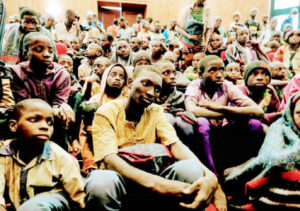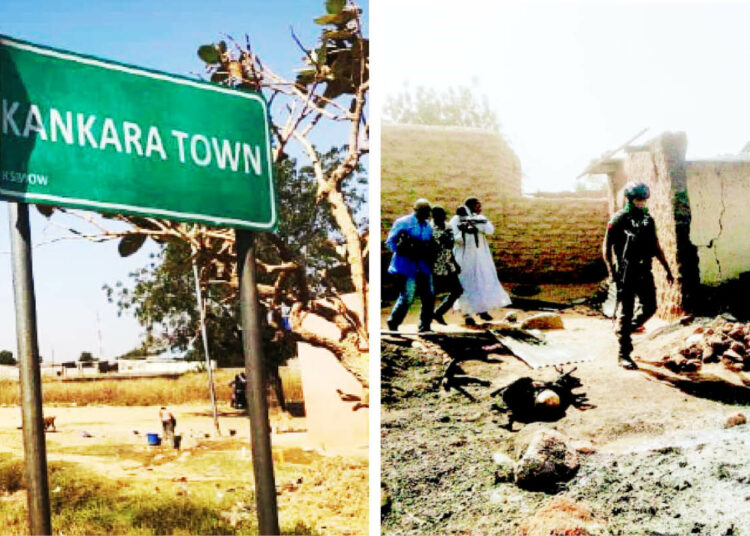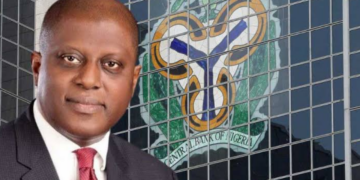Once a peaceful town in Katsina State, in Nigeria’s northwest, Kankara has transformed into a stronghold of terror and defiance. From early Boko Haram attacks to failed peace deals and mass abductions, its story mirrors a deepening war between state forces and emboldened criminals. GODWIN ENNA highlights the fact that, with political silence, forested hideouts, and local complicity fueling the crisis, Kankara now bleeds in the open.
In Katsina State, the name Kankara has become synonymous with insecurity, a symbol of the state’s long, painful battle against armed banditry and organised rural violence. From historical attacks to failed peace deals and controversial political decisions, the local government area has, over the years, evolved into what many now call the nerve centre of criminal operations in the region.
Kankara’s exposure to violent extremism predates the current banditry epidemic. In 2011, during the early expansion of Boko Haram’s insurgency, a police station in Kankara was bombed.
While the attack didn’t receive the national attention it warranted, it served as a chilling signal of the vulnerability of the area to insurgent infiltration and the weakness of its security infrastructure.
It was the first major hint that Kankara’s terrain and sparse policing could be exploited by non-state actors.
In 2019, then-governor Aminu Bello Masari launched a controversial peace initiative aimed at negotiating with bandit leaders. The symbolic starting point for the negotiation was Kankara, a move that acknowledged the area’s centrality to the bandit crisis.
Masari met with several bandit leaders in forest camps around the Kankara axis, particularly those with ties to the vast Rugu Forest, which stretches across Katsina, Zamfara, and Kaduna states.
At first, a ceasefire was announced. Bandits surrendered a handful of arms. But by 2020, the truce had collapsed. Attacks surged again, often originating from the same camps where talks had been held.
One of the most alarming confirmations of Kankara’s fragile security came on December 11, 2020, when 344 schoolboys from Government Science Secondary School, Kankara, were abducted by gunmen linked to the Bello Turji-led faction of the bandits
The attack took place just hours after President Muhammadu Buhari arrived in Katsina for a private visit. It shocked the world and exposed deep coordination between local actors and armed groups.
The boys were released after six days, following secret negotiations allegedly led by Sheikh Ahmad Gumi and the Miyetti Allah Cattle Breeders Association of Nigeria (MACBAN). But the incident sealed Kankara’s place in the national consciousness as a hotspot of insecurity.

A Twitter user known as @Bankatsine made a bold claim: “Bandits have taken over Kankara.” The tweet went viral, drawing sharp reactions from both the public and government officials. While government sources attempted to downplay the assertion, testimonies from residents confirmed that daily attacks, extortion, and road ambushes had become the norm.
The post exposed how digital voices were now echoing the cries long ignored by authorities on the ground.
Recently, the chairman of the National Union of Road Transport Workers (NURTW) in Dutsin-Ma, Aminu Usman, issued a travel advisory urging commercial drivers to avoid the Kankara–Dutsin-Ma road due to incessant bandit attacks. The move, although welcomed by many drivers, triggered a political backlash and led to his suspension by the union’s state leadership.
His suspension highlighted the institutional tension between public safety and political image, a dilemma that continues to plague Katsina’s approach to insecurity.
Kankara’s geographical location gives it unfortunate strategic importance. It lies adjacent to the Rugu Forest, one of the largest and most inaccessible wildernesses in northern Nigeria. The forest serves as a base of operations for bandit leaders such as Bello Turji, Dankarami, and Kachalla Halilu.
Intelligence sources have confirmed that the forest facilitates safe havens, supply chains, and transit routes used by various criminal factions.
Many attacks in Kankara are launched from this forest, and efforts by military forces to uproot the camps have faced resistance due to terrain complexity and insider sabotage.
The Emir of Katsina, His Royal Highness Abdulmumin Kabir Usman, has been vocal about the state’s growing insecurity. In a public gathering at the Emir’s Palace, he declared:
“We are sitting on a keg of gunpowder. If the government does not act, our people will lose hope. The bandits are known, yet they walk free.”
His remarks mirrored the frustrations of ordinary citizens who feel abandoned by the system. The Emir, along with other traditional rulers, has been pushing for more community-based security mechanisms with limited state support.
This aligns with local suspicions of what many call “an act of royalty” a reference to whispers that some local elites and traditional stakeholders may have indirect ties to bandit elements.
These accusations remain difficult to prove but persist among communities who see selective enforcement of justice
Since assuming office in May 2023, Governor Dikko Umar Radda has made security his top priority. His administration has launched the Katsina Community Watch Corps, strengthened the Amotekun-style local vigilantes, and actively sought military collaboration to intensify operations around Kankara. Despite these measures, the challenges remain formidable and complex.
Speaking at a town hall event in April 2024, Governor Radda acknowledged the gravity of the situation: “We are dealing with a deeply rooted crisis. Kankara is not just affected — it has become a command centre for the bandits.”
Yet, despite ongoing efforts, reports of killings, kidnappings, and ransom payments persist, underscoring that the war against banditry is far from over. Kankara’s plight reflects not only the security failures of Katsina State but also the broader structural governance crisis plaguing Nigeria’s northwest region.
It starkly embodies how geography, historical neglect, broken promises, digital activism, and entrenched power dynamics intersect to create a relentless vortex of violence.
Until the full weight of the law, genuine community collaboration, and unwavering political courage come together, Kankara will remain more than just a town—it will continue to be the epicentre of Katsina’s insecurity.





